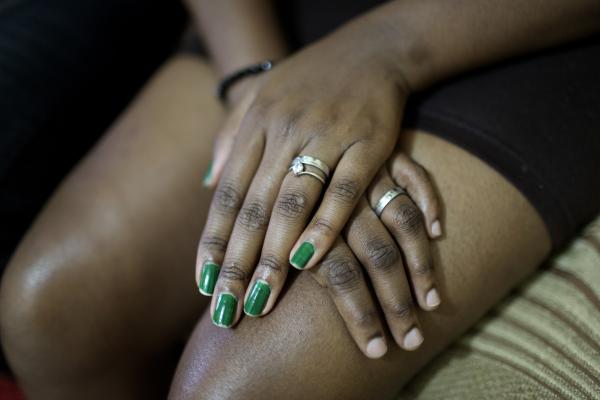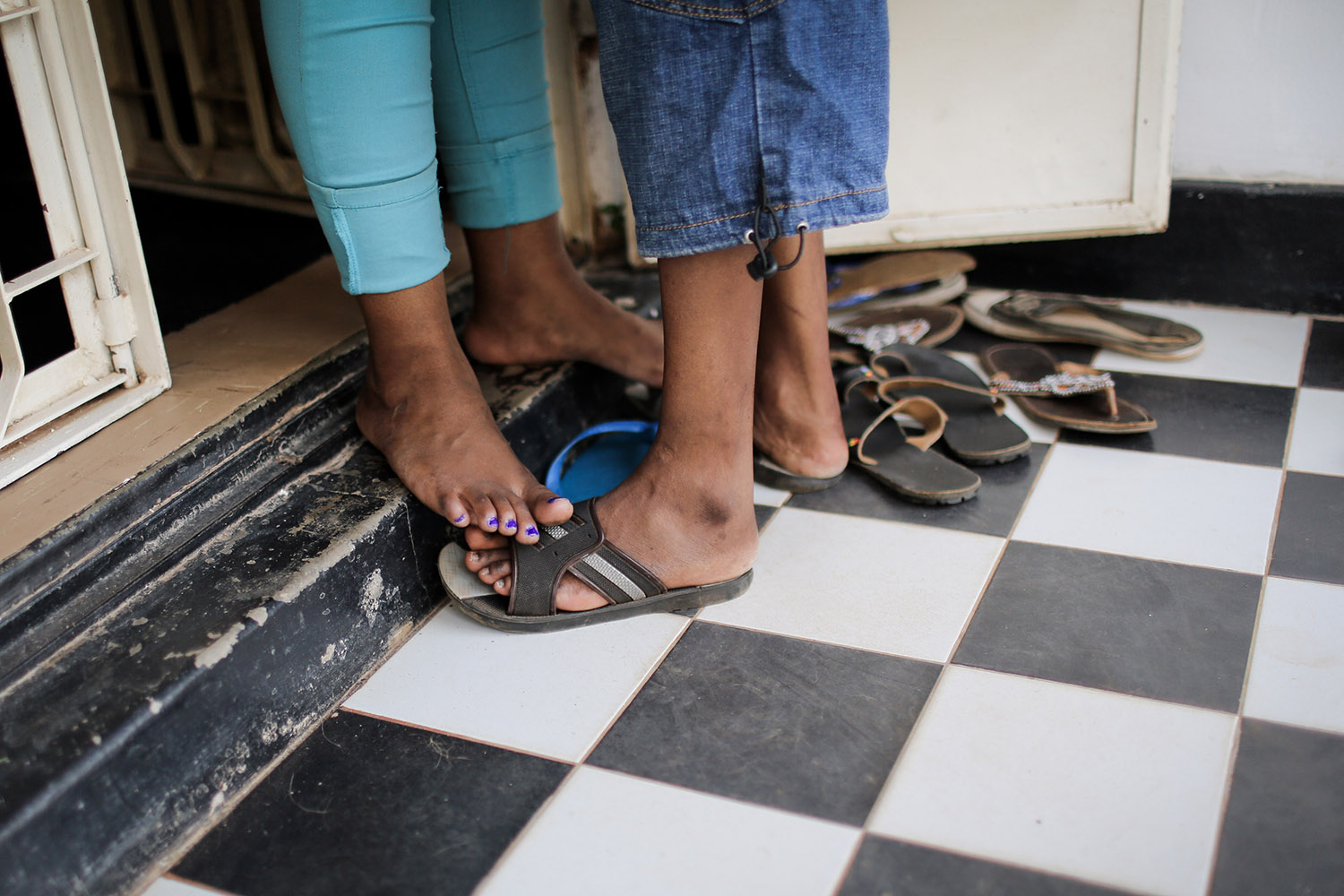
A MOMENT OF PRIDE IN UGANDA
Earlier this month, Uganda's Constitutional Court overturned the country's so-called Anti-Homosexuality Law on a procedural technicality. Not the defining victory that LBGT activists had been hoping for, but a victory all the same.
Pulitzer Center grantee Daniella Zalcman has been following this story for many months. When the law criminalizing homosexual behaviors was signed by Uganda's president last February, much of Daniella's photographic work documenting the lives of Kampala's LGBT community could not be published because it would endanger the lives of those who could be identified.
Now that there has been a reprieve, Daniella has published some of the images in Mashable. The mood in Kampala has lightened. "Sexual health organizations and support groups are getting ready to reopen. The bars in downtown Kampala that used to have gay-friendly nights might return. And most symbolically, Kampala will see its third annual Pride celebration [this] week, on the banks of Lake Victoria," writes Daniella.
THE UNDERFUNDED FIGHT AGAINST TB
Tuberculosis is a disease of poverty. It is also the world's second-deadliest infectious disease. But as Pulitzer Center grantees David Rochkind and Jens Erik Gould point out, "efforts to fight it are critically under-funded."
In an Untold Story dispatch for the Pulitzer Center, Jens sketches a profile of a man named Bui Van Thiet, a paraplegic who lost his legs in the war against the U.S., survives on cigarettes and lives in a damp hovel that most likely caused his tuberculosis.
"Sadly, Thiet's stark poverty represents why fighting tuberculosis worldwide isn't a priority," writes Jens. "There is no glamour here. Celebrity activists would be unlikely to advocate for Thiet as they did for HIV patients. He's unlikely to find himself on a charity poster as a child suffering from malaria would. His doctors and nurses are seldom heard either, often underpaid despite subjecting themselves to a high-risk work environment. TB is largely an illness of the voiceless poor, which is part of the reason funding pales in comparison to a disease like HIV."
PACKING UP A WAR
The Defense Department expects to spend about $7 billion to pack up and ship home some 750,000 pieces of equipment as combat operations wind down in Afghanistan. A lot of the packing up is being done by a Wisconsin National Guard unit.
"One bolt, one beam, one rivet at a time. Tents, buildings, maintenance facilities — all are vanishing as the landscape reverts back to the sand-swept terrain it looked like before coalition forces moved in to defeat the Taliban shortly after the Sept. 11 terror attacks," writes Pulitzer Center grantee Meg Jones in the Milwaukee Journal Sentinel.
Meg and Pulitzer Center multimedia projects coordinator Meghan Dhaliwal are in Afghanistan to document this closing chapter of American's longest war. Meg is keeping a daily blog which you can read here.
Until next week,
Tom Hundley
Senior Editor





